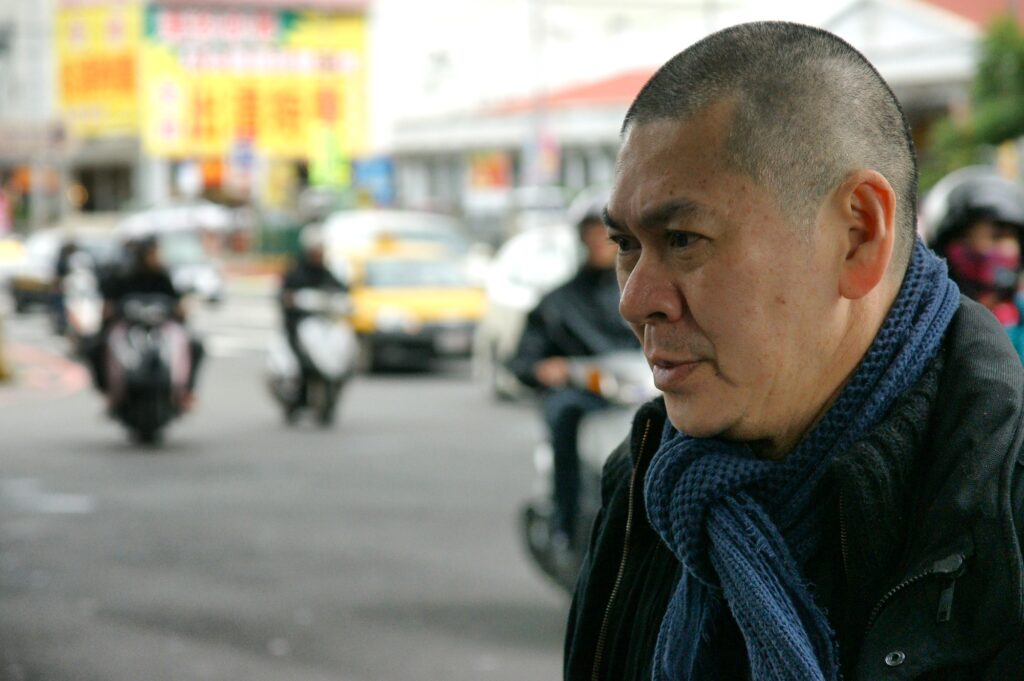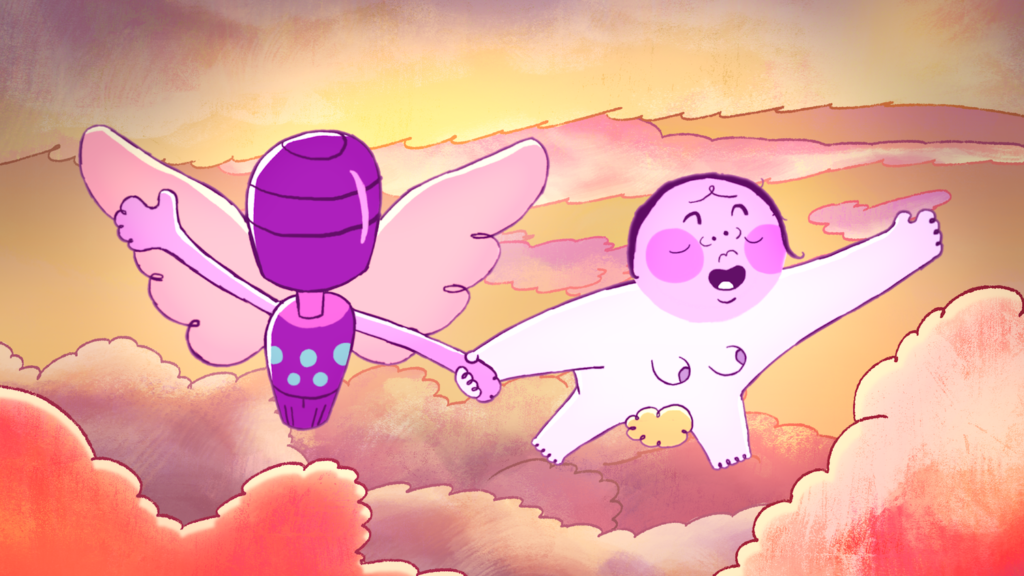Colonization leaves scars on a people, as does uncertainty over being able to control their own national future—the latter an emotion Americans may now be feeling for the first time since exiting the British Empire. Taiwan is a particular case, a prosperous developed country that nonetheless has spent much of its history under somebody else’s thumb: The Dutch, Imperial China, Japan, then the internal oppression of martial law. When that last ended after nearly four decades in the late 1980s, it was no coincidence that simultaneously there arose in various art forms a new freedom of expression and sense of questioning identity, no longer fettered by governmentally enforced censorship or propaganda.
Its opening salvos arriving as early as 1982, New Taiwanese Cinema gave birth to filmmakers like Hou Hsiao-hsien and Edward Yang, who attracted international attention with movies that in various ways amplified a national identity crisis. They did so not schematically, but in the impressionistic language of arthouse movies, offering primarily ambivalent, non-hyperbolic dramas about ordinary people—often emphasizing individual alienation and the struggle to connect. It was not a school bound to generate huge commercial success (in fact some blamed NTC for the local film industry’s near-demise from a surge in more popular foreign imports), but it expanded the medium with voices and ideas that were unique, pushing at previously unbreachable boundaries. Now, of course, that sensibility is informed not just by the past, but also by a present anxious over the threat of losing fragile democratic independence to encroaching control by the mainland People’s Republic of China.

Arguably none of those screen voices has been more distinctive than that of the director being hosted by Berkeley’s BAMPFA for the remainder of this month. “Tsai Ming-liang in Person” is a two-week series whose subject will be on-site (accompanied by his actor muse Lee Kang-sheng) for the last six days and seven titles being shown. Alas, every one of those appearances had already sold out by the time of this writing. But wait lists and no-shows are a thing; it can’t hurt to try getting in.
No doubt part of what underlies the pervasive character isolation from an elusive mainstream society in Tsai’s work is his own background: Of Chinese descent, he was raised in Malaysia, then at age 20 moved to Taipei, also spending some early professional years in Hong Kong. It was while directing one of several TV movies there in 1991 that he met and cast Lee, an arcade worker with no acting experience or aspirations.
Lee has been in virtually ever Tsai project since, his character always named Hsaio-kang (when named at all), though there’s otherwise no real narrative through-line. He’s also gone on to act in other people’s movies, as well as writing and directing a few of his own, including 2007’s prize-winning Help Me Eros. Most often a quiet center of gravity for Tsai, Lee can rise to flamboyance when required; he is not conventionally handsome or the vehicle for any conventional star persona, yet there is a magnetism there.
He starred in Tsai’s breakthrough first theatrical feature Rebels of the Neon God in 1992, playing Fri/22. (This week the series commences on Thurs/14 with King Hu’s Dragon Inn, a terrific, hugely influential 1967 Taiwanese period wuxiaaction epic paid extensive tribute four decades later in Tsai’s Goodbye, Dragon Inn.) That portrait of rudderless urban youth impressed many. More bracing and original still was their next collaboration, 1994’s Vive l’amour, which won the Golden Lion at Cannes.
Probably my favorite of Tsai’s films, Vive‘s tale of three loners unknowingly sharing vacant apartment space—two young men squatting there on the sly, plus the female real estate agent who uses it for quickie sexual liaisons—offers a very long, almost dialogue-free buildup that can seem aimless to a point. But then there are slyly hilarious payoffs, not to mention a very long (over six minutes) shot of one character crying in a park that is as mysterious as it is touching. Director and star will make their first BAMPFA appearance in conversation with Professor Andrew F. Jones after its screening on Wed/27.
2001’s What Time Is It There? (Fri/29) is a similar enterprise, with more furtive sex, and a major narrative component shot in Paris. But three years prior, The Hole (Thurs/28) took a big imaginative leap, with another forced-neighbors dynamic exacerbated by an element of Kafkaesque nightmare fantasy, plus random bursts into song and dance set to retro screen diva Grace Chang’s kitschy old pop hits. Tsai expanded that concept further into the extravagant lipsynch production numbers of his biggest audience success, 2005’s The Wayward Cloud (which is not in this series). And he paid homage to yesteryear’s “golden age” cinema in general with the aforementioned 2003 Goodbye, Dragon Inn (Sat/30), a droll ensemble piece in which everything from secretive gay carnality to rapt cinephile nostalgia occurs during a few final hours at a crumbling, about-to-be-shuttered old movie palace.
Tsai has often been placed in the bracket of “slow cinema,” alongside such past and present practitioners of that long-take, cryptic-narrative aesthetic as Tarkovsky, Angelopoulos, Kiarostami, Tarr, Weerasethakul, Ceylan, and some fellow NTC auteurs. He’s only gone further in that minimalist direction over the last decade-plus. 2013’s Stray Dogs (Sat/30) is a plotless series of tableaux whose principal characters are a homeless family. Sand (Sun/31), from five years later, is part of a “Walker” series of installation-like films, mostly shorts, with Lee as a monk silently, meditatively traversing various locations; 2020’s “intentionally unsubtitled” Days charts two men through separate everyday activities that briefly intersect. These movies require a lot of patience, and depending on your mood may be hypnotic or stultifying. But they are gorgeous to look at—as with his actors, Tsai has remained remarkably loyal to many crew members over the years, including a handful of cinematographers.
For full program, schedule and ticket info on “Tsai Ming-liang in Person,” which runs Aug. 14-31 at Berkeley’s BAMPFA, go here.
Other events and openings of note this week:

BLUSH The San Francisco PornFilmFestival
SF’s own annual screen smutfest is back with a single in-person day at BRAVA Theater in the Mission on Sat/16, encompassing an afternoon “From Fantasy to Reality: Negotiation & Scene Creation” workshop plus two evening packages of shorts. It’s followed by fifteen days of online access, Sun/17-Sun/31, whose eight programs (available anytime during that span) have themes such as “Big/Bang” (“proving that more really IS merrier”), “Eco/Erotic,” “Power/Play” and “Local/Lore.”
Titles have been rounded up around the globe, from Europe to South and Central America, New Zealand and Malaysia to the Bay Area itself, encompassing documentary, animation, narrative, instructional and avant-garde works. Needless to say, the sexuality on tap also runs a gamut, with plenty of trans and queer representation, plus odes to boot blacking, car washing, vampire play parties, and much more. Among the few feature-length films included are Bree Mills’ two-hour Canadian “pregnancy porn thriller” Birth, DW Zero’s Greek experimental opus Blue Movie, veteran directors Charles Lum and Todd Verow’s (Frisk) collaboration Memorabilia, and Maria Beatty’s spiritual erotica Lilith Rising. How many films and videos are there in total? You guessed it: 69. For full info, go here.
Boys Go To Jupiter
A nearly one-man animation enterprise apart from its fairly starry voice cast (which includes Cole Escola, Janeane Garofalo and Elsie Fisher), Julian Glander’s surreal slacker comedy is a worthy commentary on our ever-shrinking future as encapsulated by the cultural calamity of suburban Florida. Protagonist Billy 5000 is a teenager determined to make the gig economy work for him, a goal naturally doomed to failure. But as he chases the decreasingly almighty dollar (or at least some cryptocurrency equivalent), he encounters myriad equally-misguided personalities on his path, including a space creature who apparently has an interplanetary snacking vlog.
This is a goofy, amusing, and colorful exercise that visually recalls Gumby creator Art Clokey’s stop animations, though it was actually made using the same software program that birthed last year’s very different-looking Oscar winning Flow. Its absurdism in a vaguely Daria-like mode of adolescent angst is further heightened by original indie pop tunes from Miya Folick that combine catchy minimalism with deadpan lyrics about mundane topics. Boys opens at SF’s Balboa and the Rialtos Cerrito & Sebastopol on Fri/15.
The Last Class
Elliot Kirschner’s documentary about former Secretary of Labor Robert Reich has already been playing around the Bay Area some weeks, but such is the state of arthouse marketing these days that I kept finding out about venue bookings only after they’d already opened. However, this week the film is playing SF’s 4-Star Theater Sat/16-Sun/17 (with the director in person on the first date), in addition to continuing at Berkeley’s Elmwood and Marin’s Smith Rafael Film Center—for a full list of where it’s playing around the country, go here.
Defying my expectations, this gracefully crafted, slim (at 75 minutes) effort does not include much lecture content from the “Wealth & Poverty” class that was the subject’s final course at UC Berkeley after 41 years of teaching over all. Nor does it offer more than a cursory overview of his remarkable career, which in public service alone stretches back to the Ford administration. It doesn’t give you much insight into his current, four-alarm-fire political views, either—although if like me you’re one of the 10 million or so people who follow him on social media, you’re already familiar with those.
Instead, it’s a primarily a fond tribute to a generous personality apparently much loved by many, not least several decades of students. Reich is valued for numerous reasons, but it’s hard not to treasure him today for simply being a “public intellectual.” That’s something the US has seldom had great use for, and which now seems to be headed towards extinction in a climate hostile not just towards intellect and academia, but seemingly knowledge itself. Not a great introduction to a great citizen, The Last Class is nonetheless a disarming homage to him.
East of Wall
At one point in Class, Reich laments of his latterday TV appearances, “I’m usually on these yelling shows,” trying to get a “liberal voice of reason” word in edgewise amongst conservative-pundit screamers and interrupters. At first, there’s something equally off-putting about Kate Beecroft’s docu-drama, whose protagonists mostly play their real-life selves. The main character here is Tabatha Zimiga, a recent widow running a horse ranch in the Badlands of South Dakota. But she’s hardly alone—the place is also home to a shifting population of kids, mostly teenage girls, who’ve landed there after fleeing broken homes, domestic violence, substance abuse, suicides in the family, etc.
Taught to break horses and compete on the rodeo circuit, they have to abide by Tabatha’s rules. But it’s a turbulent household, to say the least, additionally roiled by outside financial pressures. Possible rescue appears in the form of a would-be buyer, portrayed by professional actor Scoot McNairy. But can this stranger’s promises be trusted? More, does Tabatha want to relinquish ownership of the land that’s been in her family for generations? Not to mention the independence that goes with it, however hemmed in by debt?
These people have lived hard lives (no matter how young they are), and are abrasive company—it takes us a while to warm up to them rather than instinctively recoil. Despite its fictional elements, Wall struggles to find narrative structure, arguably copping out with a deus ex machina resolution. But the folks onscreen stubbornly earn our respect, particularly once we grasp just how much they’ve had to overcome. And the whole thing is very handsomely shot by Austin Shelton. East of Wall opens Fri/15 throughout the Bay Area, including at SF’s Opera Plaza and Metreon, Berkeley’s Elmwood, Oakland’s Piedmont Theater, and AMC Bay 16 in Emeryville.
Checkpoint Zoo
While it’s no docudrama, documentaries don’t get much more dramatic than Joshua Zeman’s feature about Feldman Ecopark, a wildlife facility founded to benefit the public (and in particular special-needs children) by an animal-loving wealthy businessman in Eastern Ukraine. Unfortunately, its location is very close to the Russian border… so you know where this is headed. When Vlad & his impalers began shelling in early 2022, three workers and numerous non-human residents got killed, some among the latter dying of starvation or pure cardiac-arresting panic.
Eventually remaining skeleton staff and a corps of hastily assembled volunteers (led by a veterinary student) risked their lives to keep the beasts alive. And to find means of evacuating them—some 4700 of “them,” from big cats to ostriches. There’s no question of the Russians allowing or encouraging this harmless rescue to take place. Indeed, those hostile forces often begin strafing and bombing the moment their drones detect any human movement in the area.
Needless to say, that makes for some harrowing nonfiction cinema, heavy on two-legged and critter appeal alike. There’s no cloying cuteness here, or much in the way of politics either, just a very urgent and involving story of bravery under terrifying circumstances. Highly recommended, Checkpoint Zoo is opening this Fri/15 at Mill Valley’s Sequoia, Larkspur’s Lark, and the Rialtos Elmwood & Sebastopol; at presstime there were no San Francisco venues as yet.






